According to the World Health Organization (WHO), vaccines are one of the safest and most effective ways to protect against dangerous diseases, saving millions of lives each year.
But not everyone trusts them.
This was the case for one woman, who not only rejects vaccines but also believes her nephew’s allergies are contagious. Convinced they could harm her unvaccinated kids, she insisted he stay home during the upcoming family wedding.
However, the boy’s mom refused, and the situation spiraled into a heated drama. Read all about it below.
More info: Reddit
The anti-vax woman demanded that her sister keep her ‘sick’ son away from her children

Image credits: LightFieldStudios (not the actual photo)
Her sister, however, found the request absurd and refused, sparking some heated family drama
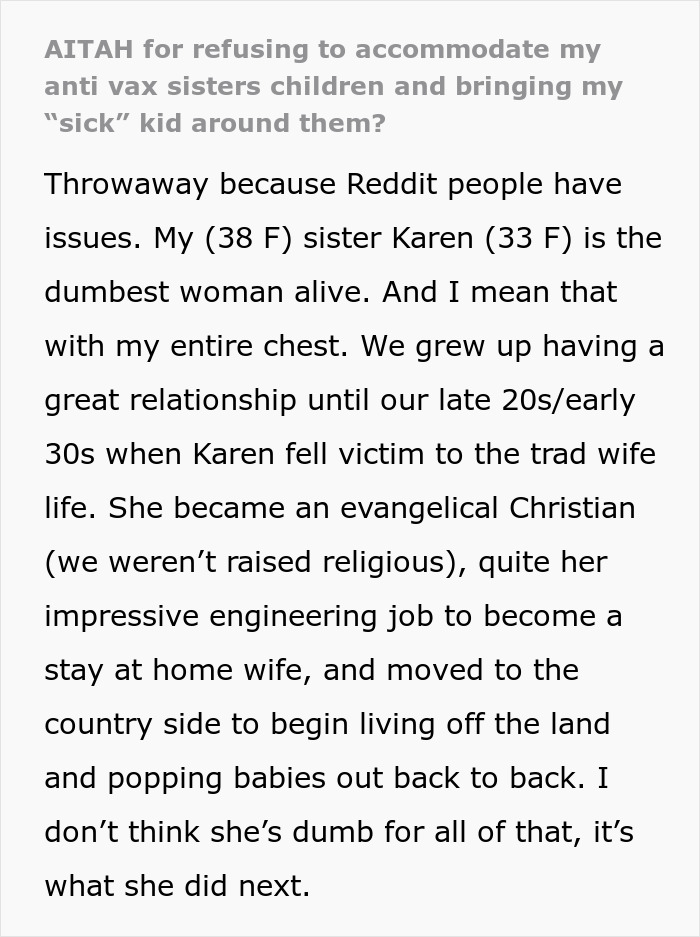
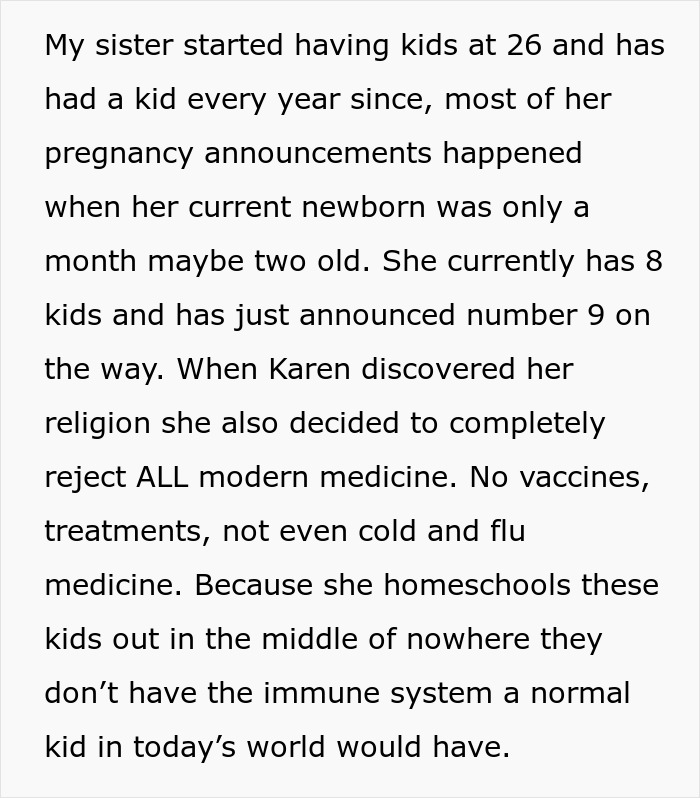
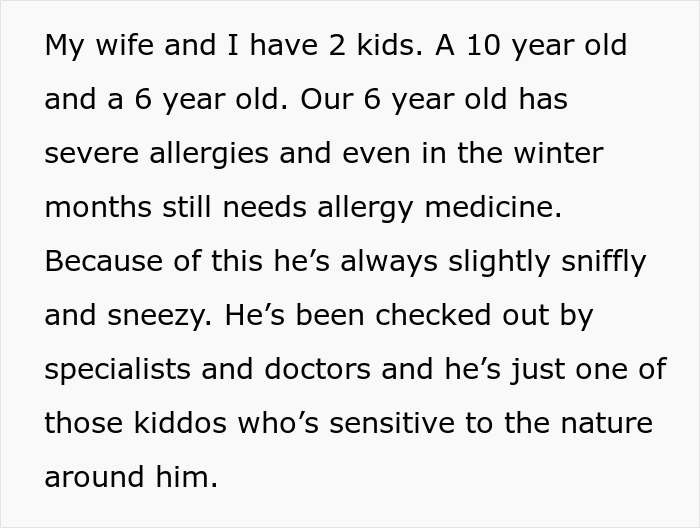
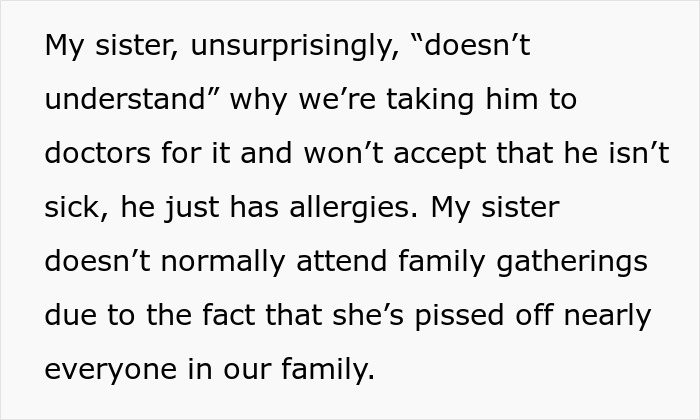
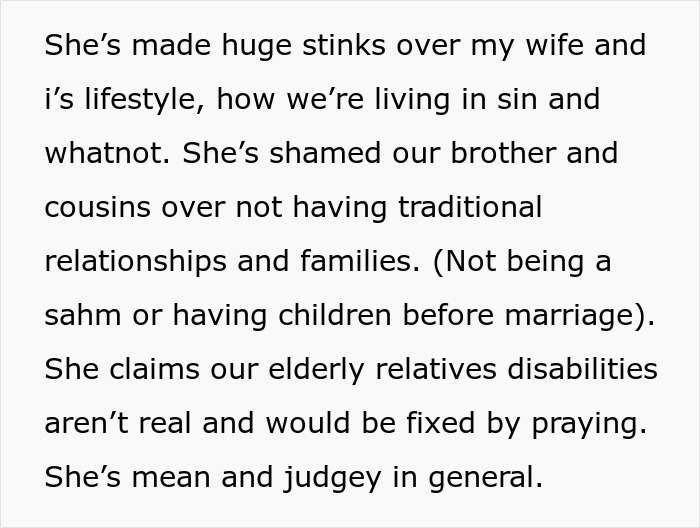

Image credits: YuriArcursPeopleimages (not the actual photo)
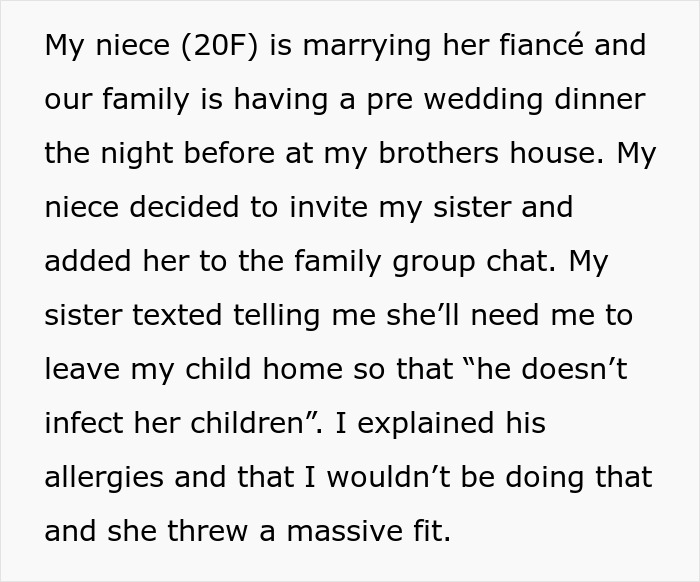
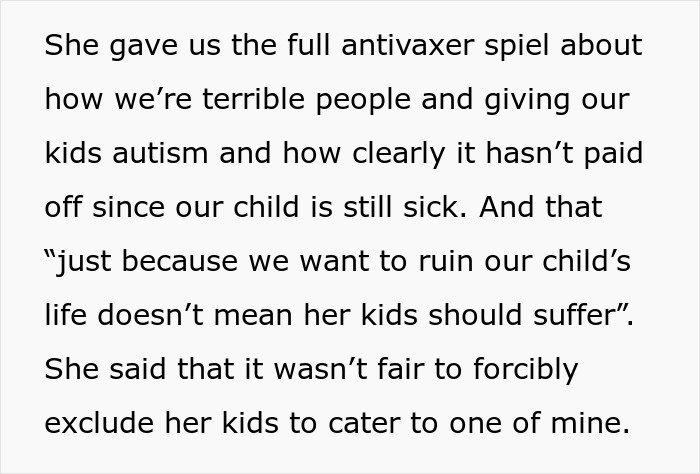
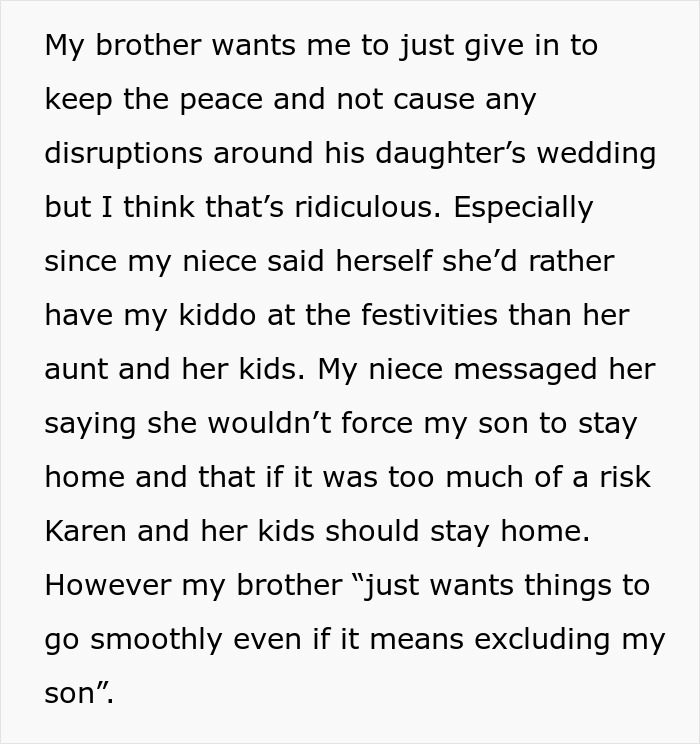
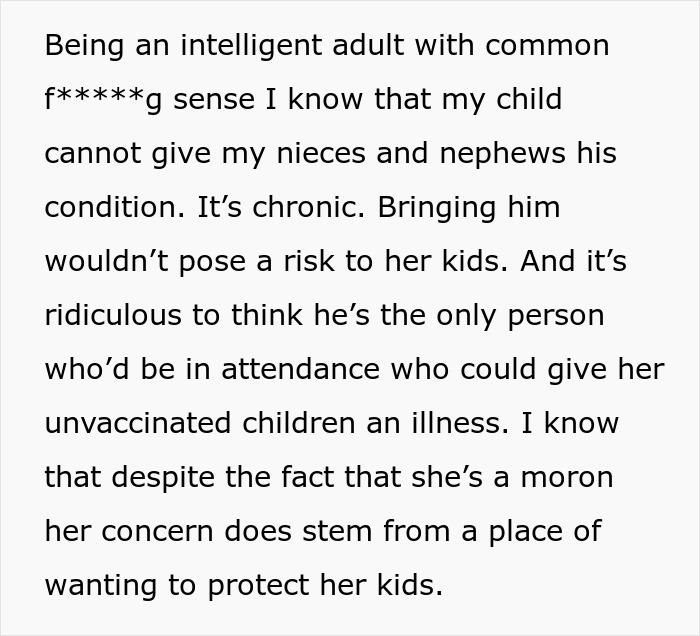

Image credits: anonymous

Image credits: Getty Images / Unsplash (not the actual photo)
Not vaccinating your children can have serious consequences
A survey from the Annenberg Public Policy Center of the University of Pennsylvania revealed that the number of adults who don’t think vaccines are safe is on the rise. The OP’s sister is part of this growing group, and these increasing rates can lead to serious risks for everyone.
According to UNICEF, when children don’t get vaccinated on time, they face a higher chance of contracting diseases like hepatitis, tuberculosis, whooping cough, and diphtheria. Even illnesses like measles, which are preventable with vaccines, can cause dangerous complications.
Those who are unvaccinated are also more likely to make other, more vulnerable people sick. For instance, adults are often the ones who unknowingly spread whooping cough to infants—and for babies, it can be deadly. Pregnant women who contract rubella are at high risk of giving birth to children with congenital rubella syndrome (CRS), which can cause lifelong health issues. Similarly, pregnant women who catch measles face a higher chance of miscarriage.
As a result of having fully vaccinated populations, fewer people get sick, which means more people can enjoy healthier, longer lives. Take West Papua as an example—between 2010 and 2017, life expectancy rose significantly, thanks in large part to more children receiving their vaccines on time. By staying informed about vaccinations, we can all contribute to a safer and healthier world.
For more details, visit the WHO website.
Commenters sided with the author, saying her anti-vax sister was being completely unreasonable
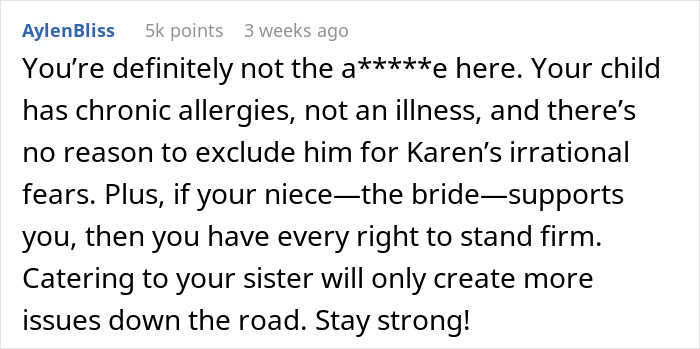

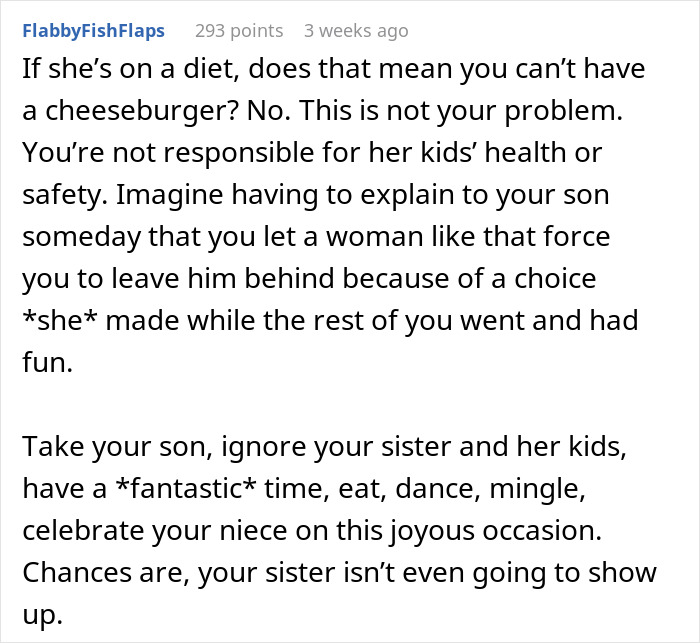
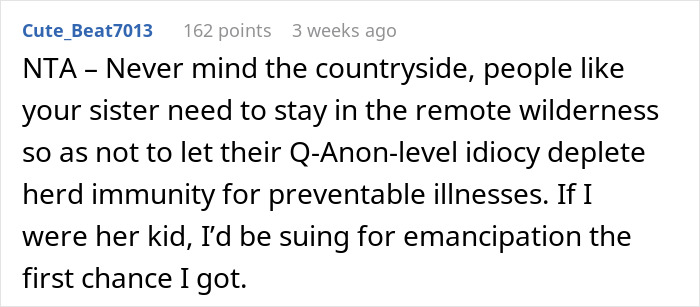
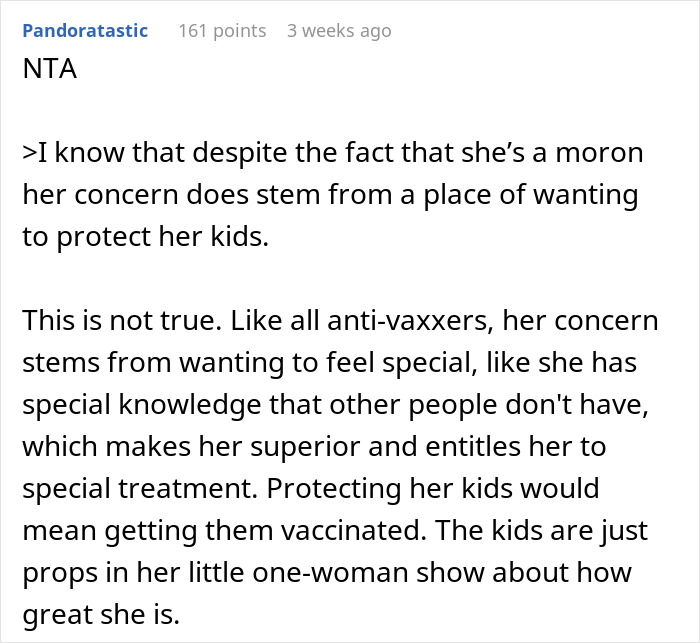
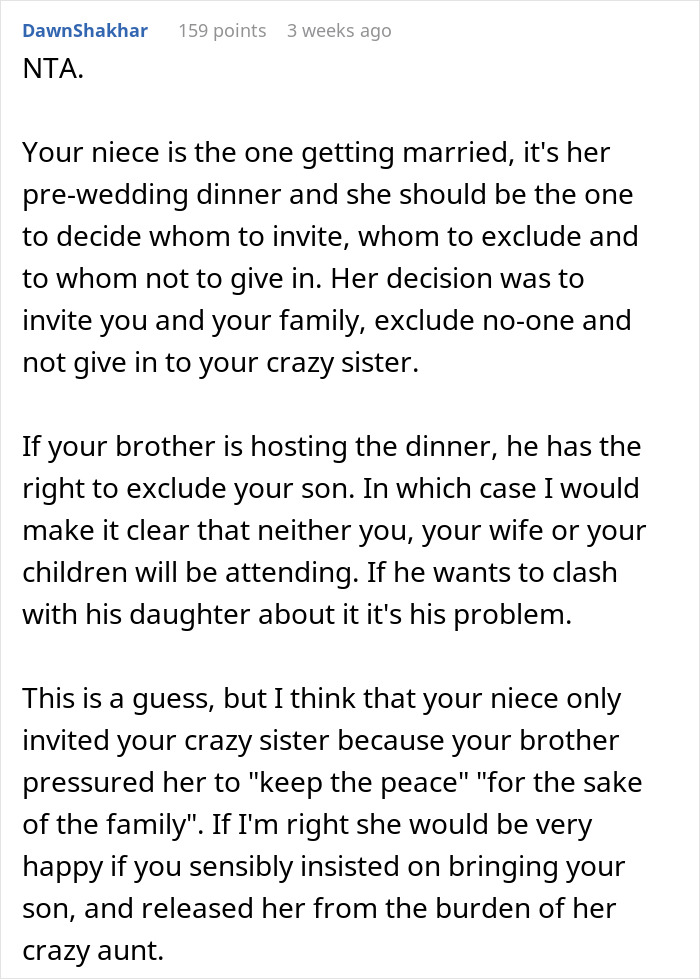
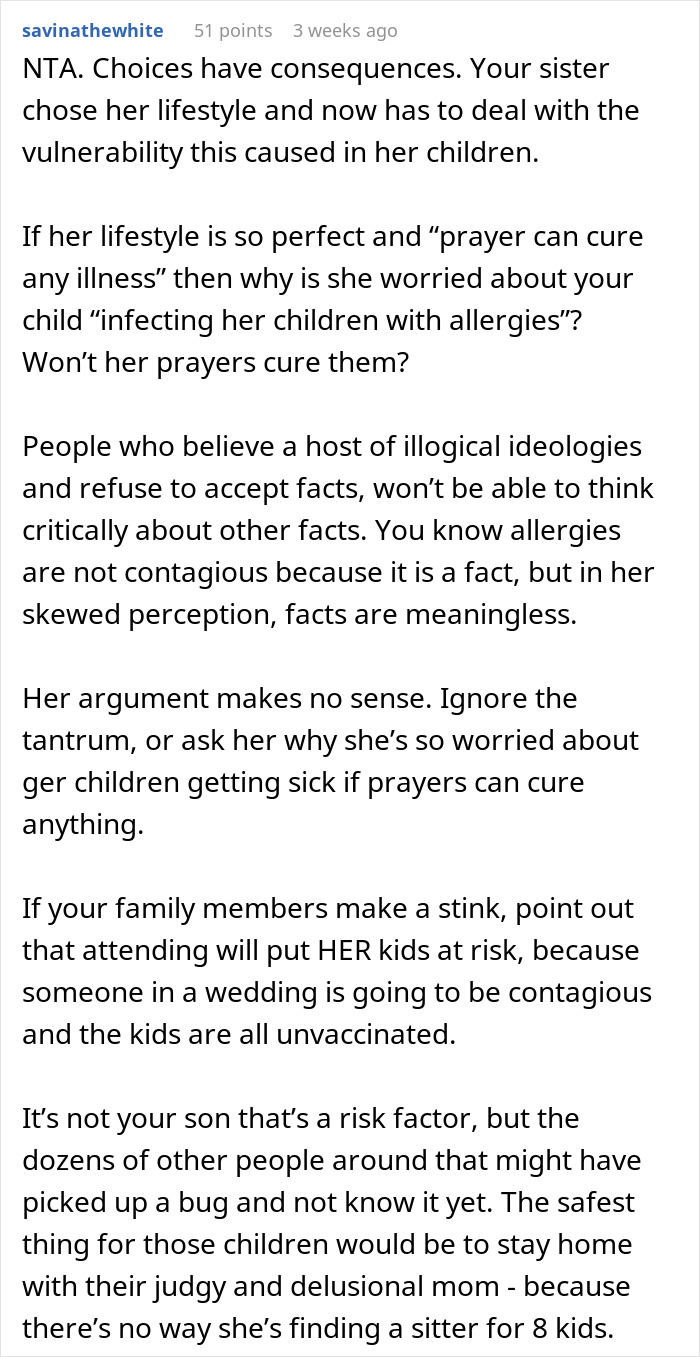




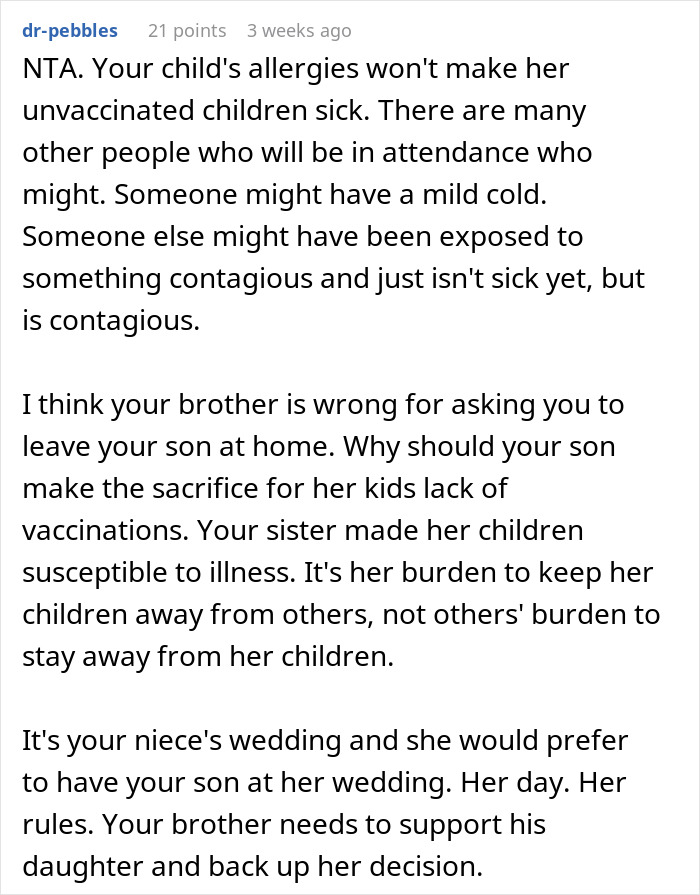
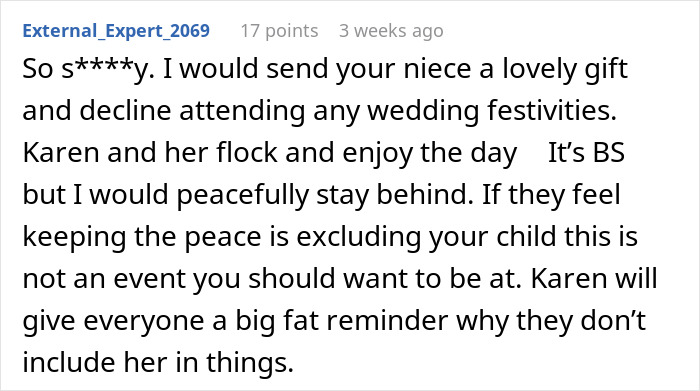
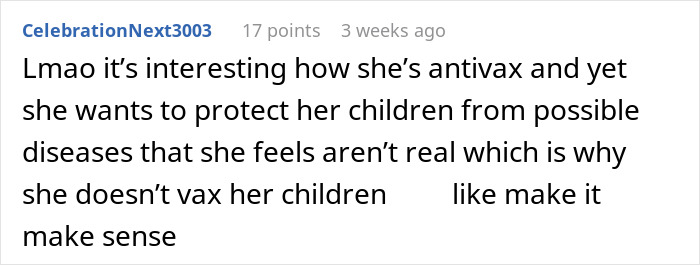

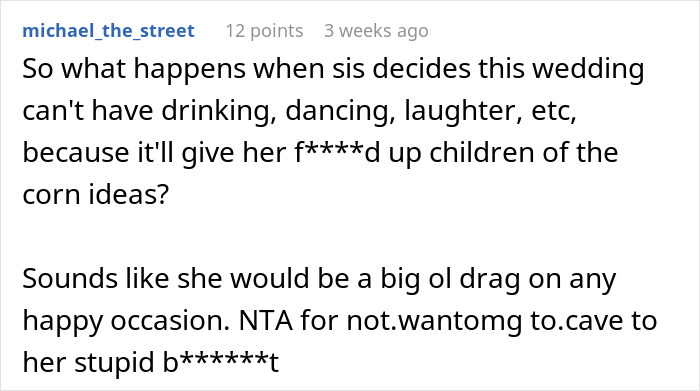


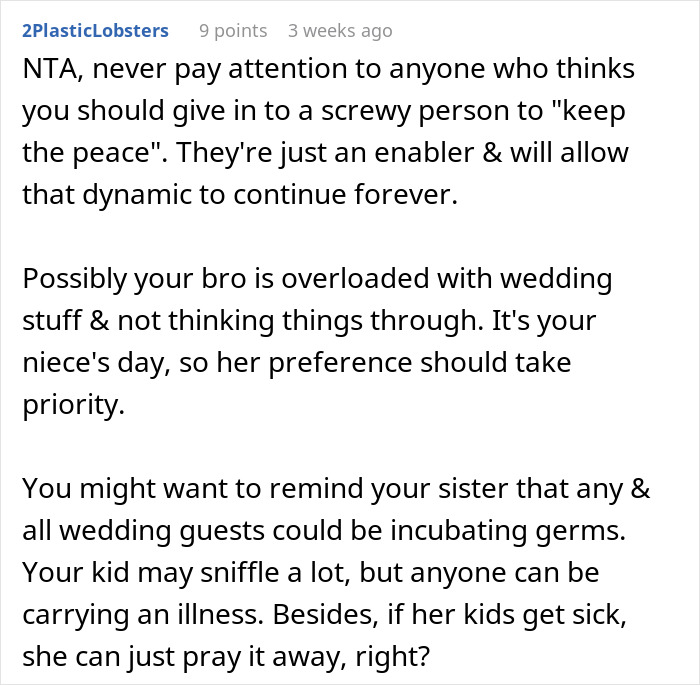
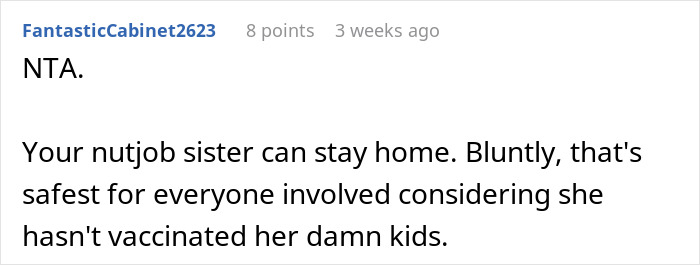
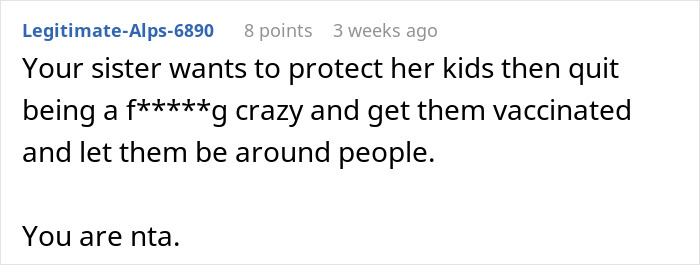


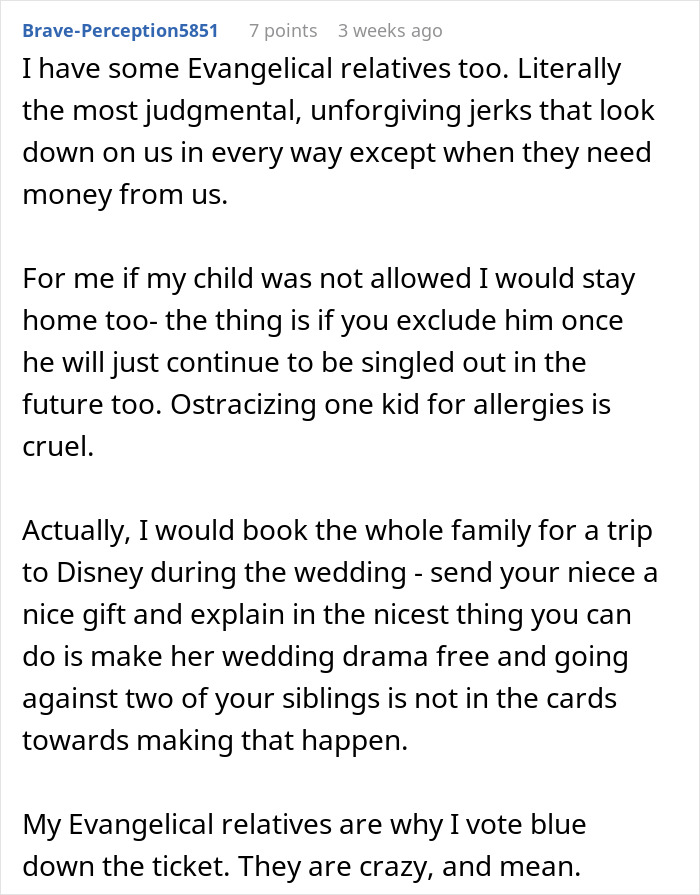
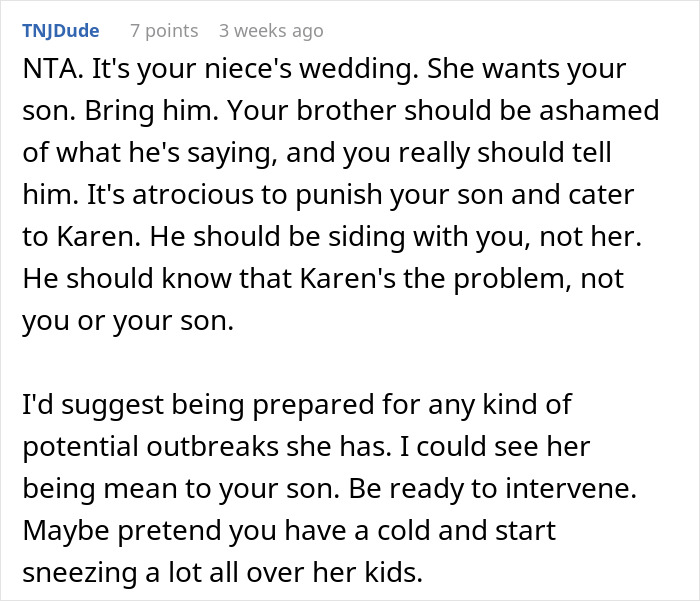

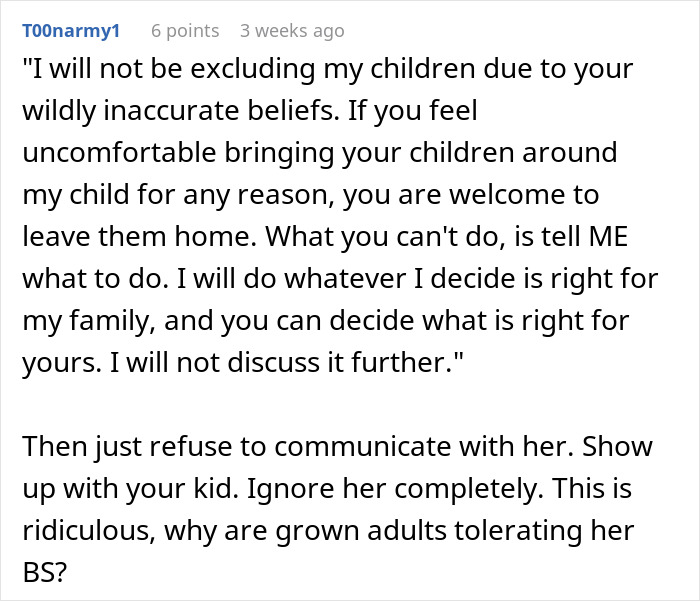
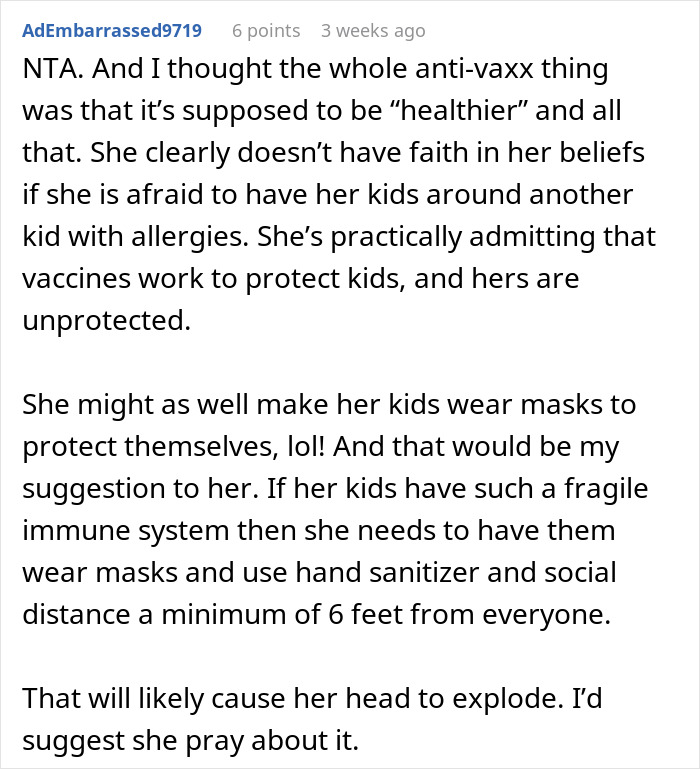












 English (US) ·
English (US) ·